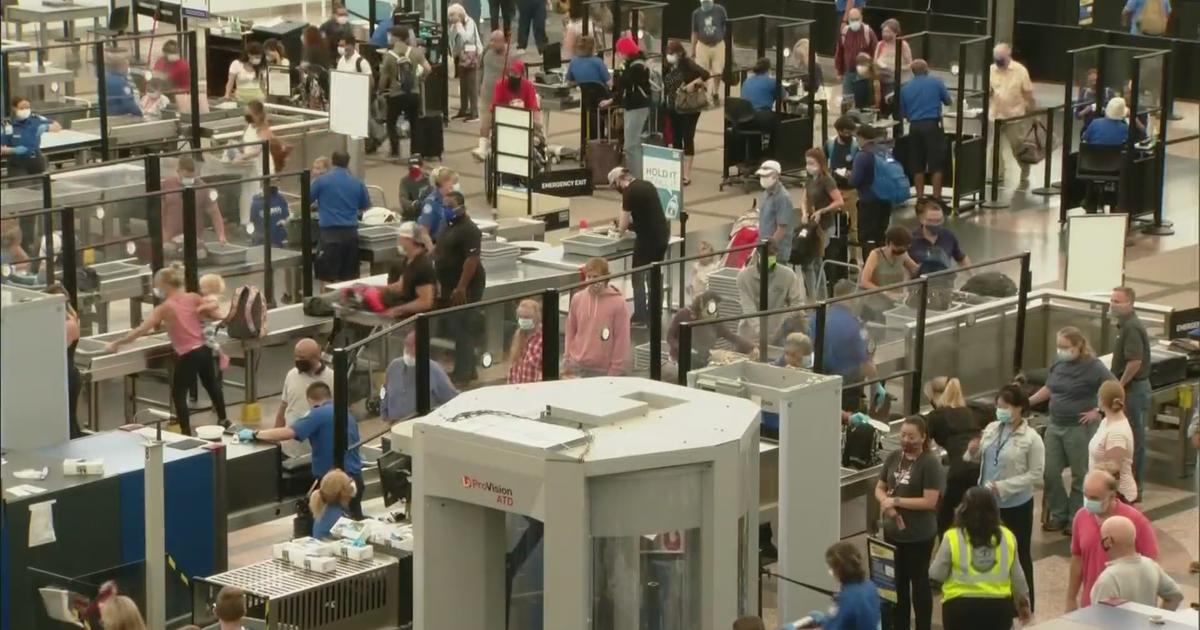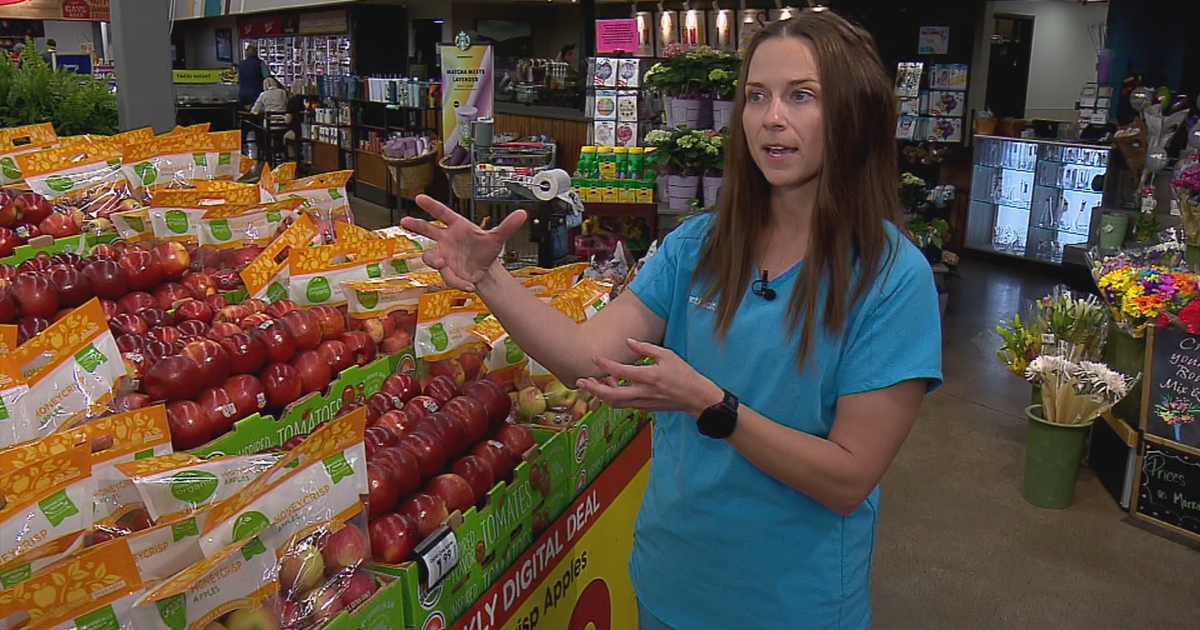Neighbors Ponder What A Bigger CSU Means To Them
FORT COLLINS, Colo. (AP) - Helen Johnson's home straddles two Fort Collins territories.
Her house is nestled in a close-knit Laurel Street neighborhood where she says people look out for one another. There's a "good sense of community."
But being a block away from the Colorado State University campus, she hears students trolling for parties on Thursday, Friday and Saturday nights. The smell of burning marijuana wafts near her home on occasion, and almost every weekend brings the chore of clearing beer bottles and fast food bags from her lawn.
"It's really the blending of two worlds," she said.
In the coming 15 years, CSU plans to be a larger piece of that mix, with plans to grow enrollment to 35,000 students from today's 27,000. For nearby neighbors, that plan brings up questions mirrored across Colorado's growing Front Range, Johnson said while taking a break from working in her front yard.
Will there be enough housing? Where will people live? Will it be affordable? It's all the talk among friends and neighbors.
"I think infrastructure will definitely be tested," she said.
Concerns about the impacts of growth at CSU and Front Range Community College are nothing new in Fort Collins.
Spurred mainly by concerns of living next to more college students, a residents group called for the temporary halt to construction of multifamily housing units in spring 2012. Worried their central Fort Collins neighborhood and others were at risk of "becoming destabilized," their comments came to light as a "gold rush or land grab" among developers was under way, a letter sent to the mayor and City Council said.
The City Council didn't OK a moratorium but did impose a number of strict land use standards for multifamily developments this winter. That change and others followed the release of the city's Student Housing Action Plan, a slew of strategies to meet student housing demand without sacrificing quality of life in primarily-single family neighborhoods.
This is a constant challenge with which city Neighborhood Services Manager Beth Sowder is familiar.
"Student housing will always be an issue in Fort Collins, as long as the university is here," she said. "And that's a good thing."
Students traditionally rent both multifamily units and single-family homes within a mile or so of campus. Unlike Arizona State University, where students are the predominant residents around campus, Fort Collins sees a unique blending of permanent and temporary tenants that manifests in various ways.
And that "clash of lifestyles can create issues" a times, Sowder said.
In partnership with CSU, Sowder's group works hard to educate students on being courteous, responsible and law-abiding neighbors. Outreach includes greeting students living near campus each fall to welcome them to the area and a host of other means such as educational campaigns, resource websites and landlord training.
"Most students" want to live in harmony with permanent neighbors, said graduating senior John Dietrick, director of CSU student government's Community Affairs. They introduce themselves and share a phone number, should neighbors have concerns about noise or partying. Sowder agreed, saying "the majority of students are great," loved by longtime neighbors.
But there are a few bad eggs.
Take the party-turned-riot on April 27 in the Summerhill neighborhood off Prospect Road, where police used tear gas to disperse hundreds of students who refused to leave, some yelling and throwing things at officers.
That was an isolated incident, Dietrick said, prompted by a "few individuals who decided not to reflect what CSU is about." And while it did change some perceptions of students, it hasn't marred their reputation in the long run, he said.
The Coloradoan asked readers how they feel about CSU's projected enrollment growth and whether neighbors and students can live in harmony. Several people said their thoughts would have been more positive, had they been asked the questions prior to the riot.
CSU student Sabrina Herrick wrote on Facebook: "The problem people have isn't that (students) are drunk at 2 a.m., it's what they do when they're drunk at 2 a.m." She said she's lost count of the number of times she's caught drunken students urinating on her apartment building.
Some said they support CSU and its efforts to bring in money at a time when it has lost hundreds of millions of dollars in state and federal funding. Others still said they are concerned about future traffic and parking challenges but welcome new residents -- temporary as they may be.
"I think certain people might be forgetting that students and residents have typically gotten along just fine in Fort Collins," said John White, who lives in an area of Old Town where there's "students mixed in."
In anticipation of CSU's growth, a slew of housing developments are being built in Fort Collins, many intended for students.
Data in the Student Housing Action Plan, released in February, show 3,421 new units with 6,123 bedrooms approved, under construction or recently completed in multifamily units. Of those, roughly 1,400 units and 3,600 bedrooms are intended to house students.
Following the April 27 riot, one question emerged: Do students make more noise and cause more disturbances when they live together, in a complex, or when they're sprinkled among permanent residents in a neighborhood?
A 2012 city staff investigation found Fort Collins Police Services issued or made 516 citations/arrests related to noise or nuisance complaints/code violations between June 2011 and June 2012. Of those 403, or 78 percent, were given to people at single-family dwellings, and 113, or 22 percent, were issued to people at multifamily residences.
This illustrates what a number of people already know: When there's a mix of lifestyles "you have more chances for someone to be disrupted," Sowder said.
While an increase of student-targeted multifamily housing isn't likely to reduce current dust-ups between students and neighbors, it may help limit any greater occurrence as CSU grows.
Dietrick says he thinks there's ample room in Fort Collins to fit both an increased number of students and others who move to the area. It's one topic he and others from CSU student government discussed recently with city officials.
"I don't think housing is an issue right now," he said.
But others clearly disagree, leaving both the university and other stakeholders to plan for what happens when the city's largest employer and major cultural driver grows in influence.
MADELINE NOVEY, The Coloradoan
(© Copyright 2013 The Associated Press. All Rights Reserved. This material may not be published, broadcast, rewritten or redistributed.)



